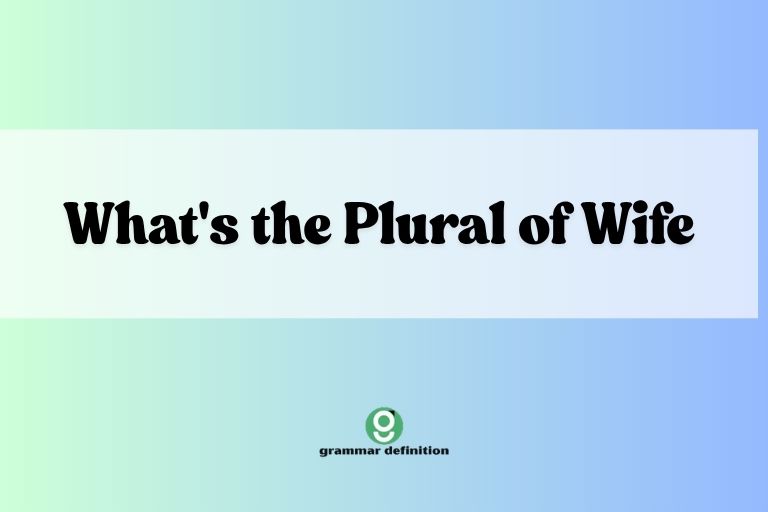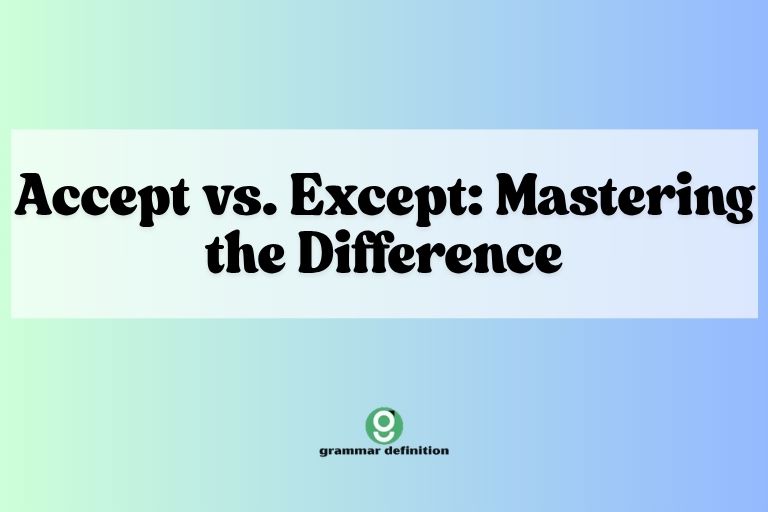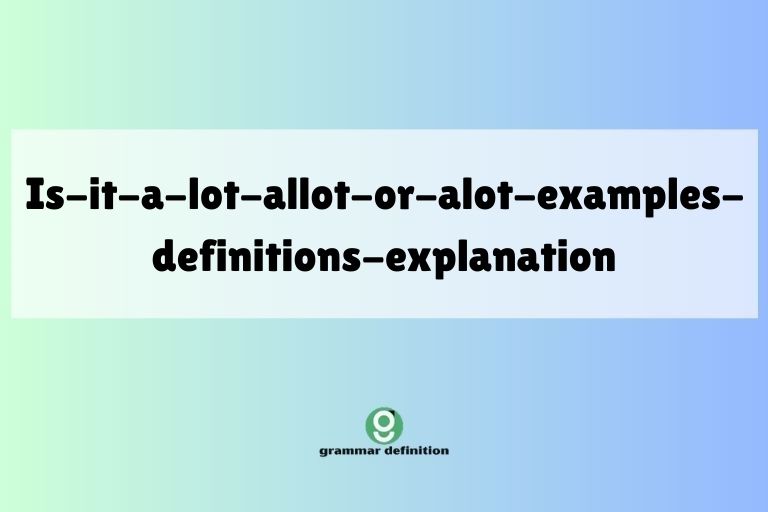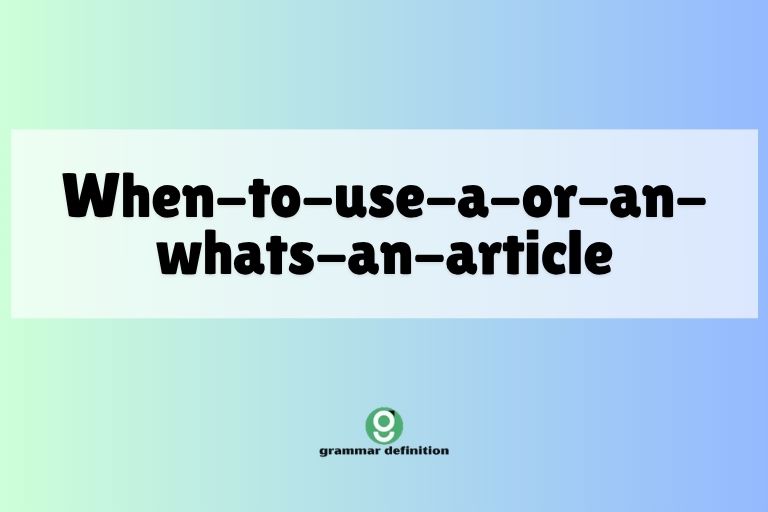Theatre or Theater: Understanding the Correct Spelling
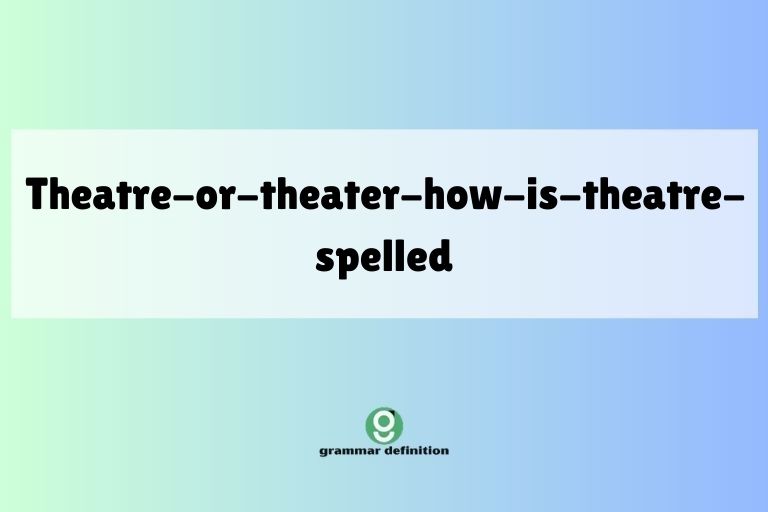
The words “theatre” and “theater” often cause confusion for English speakers. Are they interchangeable?
Is one spelling more correct than the other? This article will delve into the nuances of these spellings, exploring their historical origins, regional preferences, and specific contexts in which each should be used.
Understanding the difference between “theatre” and “theater” is crucial for clear and effective communication, whether you’re writing an academic paper, a casual email, or engaging in everyday conversation. This guide is designed for students, writers, editors, and anyone interested in improving their grasp of English grammar and usage.
By the end of this article, you will have a comprehensive understanding of when to use “theatre” and when to use “theater,” ensuring you can confidently choose the correct spelling in any situation.
Table of Contents
- Introduction
- Definition of Theatre and Theater
- Structural Breakdown
- Types and Categories of Usage
- Examples of Theatre and Theater in Use
- Usage Rules
- Common Mistakes
- Practice Exercises
- Advanced Topics
- Frequently Asked Questions
- Conclusion
Definition of Theatre and Theater
Both “theatre” and “theater” refer to a building or outdoor area used for dramatic performances, plays, and other live entertainment. They also encompass the art form itself – the production and performance of plays.
Etymology and Historical Context
Both words originate from the Greek word theatron, meaning “a place for viewing.” This root highlights the fundamental purpose of a theatre: to provide a space where an audience can witness a performance. The spelling “theatre,” with the “-re” ending, is the older form, directly inherited from French. “Theater,” with the “-er” ending, is an American simplification that emerged in the 19th century, championed by figures like Noah Webster as part of a broader effort to establish distinctly American spellings.
Classification and Function
As a noun, both “theatre” and “theater” can refer to a physical location – the building where performances take place. For example, “We went to the theatre last night” or “The theater was packed.” They can also refer to the art form itself, as in, “She’s studying theatre at university” or “He has a passion for theater.”
Contexts of Use
The choice between “theatre” and “theater” often depends on regional preferences and specific contexts. In British English and other Commonwealth countries, “theatre” is the standard spelling for both the building and the art form.
In American English, “theater” is the more common spelling, particularly for the building. However, “theatre” is often retained in proper names (e.g., “The Shubert Theatre”) and when referring to the academic study or artistic practice of theatre.
The context of the writing or the specific publication’s style guide can also influence the choice.
Structural Breakdown
The structural difference between “theatre” and “theater” lies solely in the final two letters. “Theatre” ends with “-re,” while “theater” ends with “-er.” This seemingly small difference is significant because it reflects broader patterns in English spelling variations between British and American English.
The “-re” vs. “-er” Pattern
The “-re” ending is common in British English for words that end in “-er” in American English. This pattern extends beyond “theatre/theater” to include words like “centre/center,” “litre/liter,” “metre/meter,” and “fibre/fiber.” This difference originates from the influence of French on British English, as many of these words were borrowed from French, which retains the “-re” ending.
Pronunciation
The pronunciation of “theatre” and “theater” is generally the same, with the stress on the first syllable: /ˈθiːətər/. The final syllable is pronounced as “ter” in both spellings.
Therefore, the spelling difference does not usually affect how the word is spoken.
Types and Categories of Usage
The usage of “theatre” and “theater” can be categorized based on geographical location, specific contexts, and preferred style.
Geographical Usage
In British English, “theatre” is the standard spelling for both the building and the art form. In American English, “theater” is the more common spelling for the building, while “theatre” is often used in specific contexts, such as academic settings or proper names.
Contextual Usage
In American English, “theatre” is often preferred when referring to the art form itself, especially in academic or artistic contexts. For example, a university might have a “Department of Theatre,” and a person might “study theatre.” “Theater” is more commonly used when referring to the physical building where performances take place.
For example, “Let’s go to the movie theater” or “The theater is on Main Street.”
Proper Names
Many theaters, particularly older or more established ones, retain the “theatre” spelling in their names, regardless of location. For example, “The Shubert Theatre” in New York City uses the “theatre” spelling, even though “theater” is the more common American spelling.
Examples of Theatre and Theater in Use
The following tables provide examples of “theatre” and “theater” used in various contexts. These examples illustrate the nuances of usage and help clarify when each spelling is appropriate.
Table 1: Examples of “Theatre” in British English
This table demonstrates how “theatre” is used in British English, covering both the physical building and the art form. Note the consistent use of “theatre” regardless of the context.
| Sentence | Context |
|---|---|
| We’re going to the theatre tonight to see a play. | Physical building |
| She’s studying theatre at university. | Art form |
| The Royal National Theatre is a famous landmark in London. | Proper name of a building |
| He works in theatre, designing sets and costumes. | Art form |
| The local theatre group is putting on a production of Hamlet. | Physical building |
| Her ambition is to direct theatre productions. | Art form |
| The theatre was packed with excited audience members. | Physical building |
| He’s a renowned theatre critic for a national newspaper. | Art form |
| The Grand Theatre in Leeds is a beautiful Victorian building. | Proper name of a building |
| They are building a new theatre in the city centre. | Physical building |
| She has a diploma in theatre studies. | Art form |
| The theatre company is touring the country. | Physical building |
| He is a passionate advocate for theatre in schools. | Art form |
| The theatre is located near the train station. | Physical building |
| She dreams of a career in theatre. | Art form |
| The old theatre has been renovated and reopened. | Physical building |
| He is writing a book on the history of British theatre. | Art form |
| The theatre has a seating capacity of 500. | Physical building |
| She is involved in amateur theatre. | Art form |
| The theatre is hosting a charity gala next week. | Physical building |
| He is teaching a course on theatre design. | Art form |
| The theatre is showing a new play by a local playwright. | Physical building |
| She is directing a theatre production of Romeo and Juliet. | Art form |
| The theatre is offering discounted tickets to students. | Physical building |
| He is studying the works of Shakespeare in his theatre class. | Art form |
Table 2: Examples of “Theater” in American English
This table illustrates the common usage of “theater” in American English, particularly when referring to the physical building where performances or movies are shown.
| Sentence | Context |
|---|---|
| We’re going to the movie theater to see the latest blockbuster. | Physical building (cinema) |
| The theater district in New York City is famous worldwide. | Physical building (general area) |
| The local theater is showing a new play. | Physical building |
| Let’s meet at the theater before the show. | Physical building |
| The theater has comfortable seating and excellent acoustics. | Physical building |
| The renovated theater reopened last night with a gala performance. | Physical building |
| The theater is located downtown, near several restaurants. | Physical building |
| He works as an usher at the theater. | Physical building |
| The theater is known for its impressive architecture. | Physical building |
| The theater offers a variety of performances, from plays to musicals. | Physical building |
| The community theater is putting on a production of “Grease.” | Physical building |
| We bought tickets for the show at the theater box office. | Physical building |
| The theater is hosting a fundraising event next month. | Physical building |
| The old theater has been converted into apartments. | Physical building |
| The theater is equipped with state-of-the-art sound and lighting. | Physical building |
| The theater is a popular venue for concerts and plays. | Physical building |
| The theater is decorated with vintage posters. | Physical building |
| The theater has a large stage and backstage area. | Physical building |
| The theater is wheelchair accessible. | Physical building |
| The theater provides a space for local artists to showcase their work. | Physical building |
| The theater is a historical landmark in the city. | Physical building |
| The theater is showing a classic film series this summer. | Physical building |
| The theater is offering discounts for senior citizens. | Physical building |
| The theater is a hub for cultural events in the community. | Physical building |
| The theater is located near public transportation. | Physical building |
Table 3: Examples of “Theatre” in American English (Art Form and Proper Names)
This table demonstrates the usage of “theatre” in American English when referring to the art form or when it appears in proper names of theaters or organizations.
| Sentence | Context |
|---|---|
| She’s majoring in theatre at college. | Art form |
| He’s passionate about theatre and dreams of being a director. | Art form |
| The Shubert Theatre is a famous venue in New York City. | Proper name of a building |
| She’s taking a theatre class this semester. | Art form |
| He’s involved in community theatre productions. | Art form |
| The American Theatre Wing supports aspiring actors and playwrights. | Proper name of an organization |
| She’s studying the history of theatre. | Art form |
| He’s writing a play for the local theatre group. | Art form |
| The Circle in the Square Theatre is known for its intimate setting. | Proper name of a building |
| She’s interested in experimental theatre. | Art form |
| He’s working on a research project about theatre and social change. | Art form |
| The Actors Theatre of Louisville is a renowned regional theatre. | Proper name of a building and art form |
| She’s volunteering at a theatre camp this summer. | Art form |
| He’s attending a workshop on theatre lighting design. | Art form |
| The Eugene O’Neill Theatre is a Broadway landmark. | Proper name of a building |
| She’s pursuing a career in theatre management. | Art form |
| He’s reading Stanislavski’s books on theatre acting. | Art form |
| The Minskoff Theatre is currently hosting “The Lion King.” | Proper name of a building |
| She’s performing in a theatre production of “A Midsummer Night’s Dream.” | Art form |
| He’s designing costumes for a theatre company. | Art form |
| The Winter Garden Theatre has a rich history. | Proper name of a building |
| She’s exploring different styles of theatre, from classical to modern. | Art form |
| He’s writing a thesis on the influence of Greek theatre on contemporary drama. | Art form |
| The Music Box Theatre is known for its intimate performances. | Proper name of a building |
| She’s directing a theatre project with underprivileged youth. | Art form |
Usage Rules
The primary rule governing the use of “theatre” and “theater” is regional preference. However, there are nuances to consider, especially in American English.
British English
In British English, the rule is straightforward: use “theatre” for both the building and the art form. There are very few exceptions to this rule.
American English
In American English, the rule is more complex. “Theater” is generally preferred for the physical building.
However, “theatre” is often used in the following situations:
- Proper names: When referring to a specific theater whose name includes “theatre” (e.g., The Shubert Theatre).
- Academic contexts: When referring to the study or art of theatre (e.g., “She’s majoring in theatre”).
- Formal writing: Some writers and publications prefer “theatre” in more formal or artistic contexts.
Consistency
Regardless of which spelling you choose, it’s crucial to maintain consistency within a single document or piece of writing. Avoid switching between “theatre” and “theater” unless there is a specific reason to do so (e.g., quoting someone or referring to a proper name).
Common Mistakes
The most common mistake is using “theatre” and “theater” interchangeably without considering the regional and contextual factors discussed above.
Incorrect Examples
Here are some examples of common mistakes and their corrections:
| Incorrect | Correct (American English) | Correct (British English) |
|---|---|---|
| We went to the theatre to see a movie. | We went to the theater to see a movie. | We went to the theatre to see a film. |
| She’s studying theater at university. | She’s studying theatre at university. | She’s studying theatre at university. |
| The theater Wing supports aspiring actors. | The Theatre Wing supports aspiring actors. | The Theatre Wing supports aspiring actors. |
Avoiding Mistakes
To avoid these mistakes, consider the following:
- Know your audience: Are you writing for an American or British audience?
- Consult a style guide: If you’re writing for a publication, check their style guide for preferred spellings.
- Be consistent: Choose one spelling and stick to it throughout your writing.
Practice Exercises
Test your understanding of “theatre” and “theater” with these practice exercises. Choose the correct spelling for each sentence based on the context and regional preference (assume American English unless otherwise specified).
Exercise 1: Fill in the Blanks
Choose either “theatre” or “theater” to complete the following sentences.
| Question | Answer |
|---|---|
| 1. We saw a fantastic play at the local _____. | theater |
| 2. She is pursuing a degree in _____ arts. | theatre |
| 3. The Shubert _____ is a historic landmark. | Theatre |
| 4. Let’s go to the movie _____ tonight. | theater |
| 5. He works backstage at the _____. | theater |
| 6. The university has a renowned department of _____. | theatre |
| 7. The community _____ group is putting on a show. | theater |
| 8. She is writing a paper on the history of Greek _____. | theatre |
| 9. The _____ district in New York is always bustling. | theater |
| 10. He is a passionate supporter of live _____. | theatre |
Exercise 2: Correct the Mistakes
Identify and correct the incorrectly spelled words in the following sentences.
| Question | Answer |
|---|---|
| 1. She’s studying theator at college. | She’s studying theatre at college. |
| 2. The movie theatre was packed last night. | Correct |
| 3. He works as an usher at the theator. | He works as an usher at the theater. |
| 4. The theare group is performing Shakespeare. | The theatre group is performing Shakespeare. |
| 5. They are building a new theator downtown. | They are building a new theater downtown. |
| 6. She is very interested in experimental theare. | She is very interested in experimental theatre. |
| 7. The theator district is famous for its shows. | The theater district is famous for its shows. |
| 8. He is a big fan of musical theare. | He is a big fan of musical theatre. |
| 9. We bought tickets for the show at the theator. | We bought tickets for the show at the theater. |
| 10. The theare is offering discounts to students. | The theater is offering discounts to students. |
Exercise 3: British English Spelling
Rewrite the following sentences using British English spelling conventions.
| American English | British English |
|---|---|
| 1. We went to the movie theater. | We went to the cinema. |
| 2. She is studying theater at university. | She is studying theatre at university. |
| 3. The community theater put on a great show. | The community theatre put on a great show. |
| 4. He works at the local theater. | He works at the local theatre. |
| 5. The theater district is very lively. | The theatre district is very lively. |
| 6. She enjoys going to the theater. | She enjoys going to the theatre. |
| 7. The theater is located downtown. | The theatre is located in the city centre. |
| 8. He is involved in amateur theater. | He is involved in amateur theatre. |
| 9. The theater is offering discounted tickets. | The theatre is offering discounted tickets. |
| 10. She dreams of a career in theater. | She dreams of a career in theatre. |
Advanced Topics
For advanced learners, it’s helpful to understand the historical and linguistic factors that contributed to the spelling variation between “theatre” and “theater.”
Noah Webster and American Spelling Reform
Noah Webster, an American lexicographer, played a significant role in promoting simplified spellings in American English. His dictionary, published in the 19th century, advocated for spellings like “theater,” “center,” and “color” to distinguish American English from British English.
This was part of a broader effort to establish a distinct American identity.
The Influence of French
The “-re” ending in words like “theatre” is a direct borrowing from French. Many English words with this ending have French origins.
British English has retained these spellings to a greater extent than American English.
Style Guides and Editorial Preferences
Different style guides (e.g., AP Stylebook, Chicago Manual of Style) may have specific recommendations for using “theatre” and “theater.” It’s important to consult these guides when writing for a particular publication or organization. Some editors may also have personal preferences, so it’s always a good idea to clarify preferred spellings when working with an editor.
Frequently Asked Questions
Here are some frequently asked questions about the spelling of “theatre” and “theater.”
- Is “theatre” or “theater” correct?
Both spellings are correct, but their usage depends on regional preferences and context. “Theatre” is standard in British English, while “theater” is more common in American English, especially for the physical building. “Theatre” is often retained in American English for proper names and when referring to the art form itself.
- When should I use “theatre” in American English?
In American English, use “theatre” for proper names of theaters (e.g., The Shubert Theatre) and when referring to the academic study or artistic practice of theatre (e.g., “She’s majoring in theatre”).
- Is there a difference in pronunciation between “theatre” and “theater”?
No, the pronunciation is generally the same for both spellings: /ˈθiːətər/.
- Which spelling should I use in academic writing?
In academic writing, it’s best to consult the style guide specified by your institution or publication. If there is no specific guidance, “theatre” may be preferred when discussing the art form or history of theatre, while “theater” may be acceptable for referring to a physical building.
- What if I’m writing for an international audience?
If you’re writing for an international audience, consider using “theatre” to avoid potential confusion, as it is the standard spelling in British English and many other English-speaking countries. However, be mindful of your specific audience and their familiarity with American English.
- Does the rule apply to “movie theatre” as well?
Yes, in American English, “movie theater” is the standard spelling for a place where movies are shown. In British English, the term “cinema” is typically used.
- How did the difference in spelling arise?
The difference arose from spelling reforms championed by figures like Noah Webster in the 19th century, who sought to create distinct American spellings. These reforms simplified many words that had French-influenced spellings in British English.
- Is it ever acceptable to mix “theatre” and “theater” in the same document?
It is generally not recommended to mix “theatre” and “theater” in the same document unless there is a specific reason to do so, such as quoting someone or referring to a proper name. Consistency is key to maintaining clarity and professionalism.
Conclusion
Understanding the difference between “theatre” and “theater” is essential for effective communication in English. While both spellings are correct, their usage depends on regional preferences and specific contexts.
In British English, “theatre” is the standard spelling for both the building and the art form. In American English, “theater” is more common for the building, while “theatre” is often retained for proper names and when referring to the art form itself.
By following the guidelines and examples provided in this article, you can confidently choose the correct spelling in any situation.
Remember to consider your audience, consult style guides when necessary, and maintain consistency throughout your writing. With practice and attention to detail, you can master the nuances of “theatre” and “theater” and avoid common mistakes.
Keep practicing and you’ll master it in no time!


